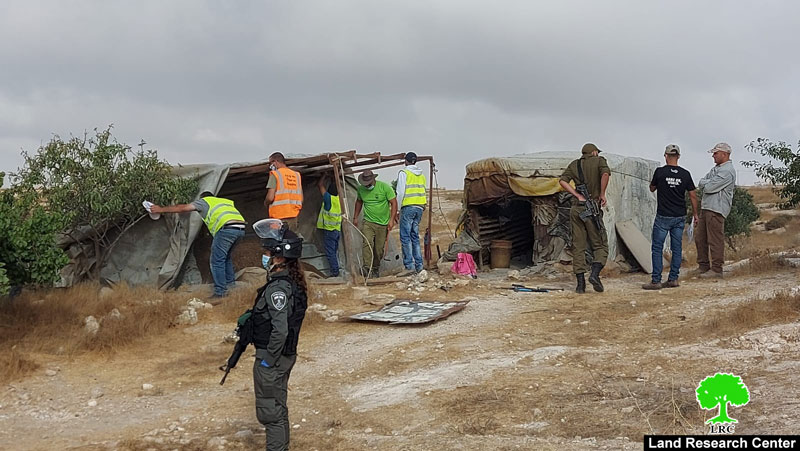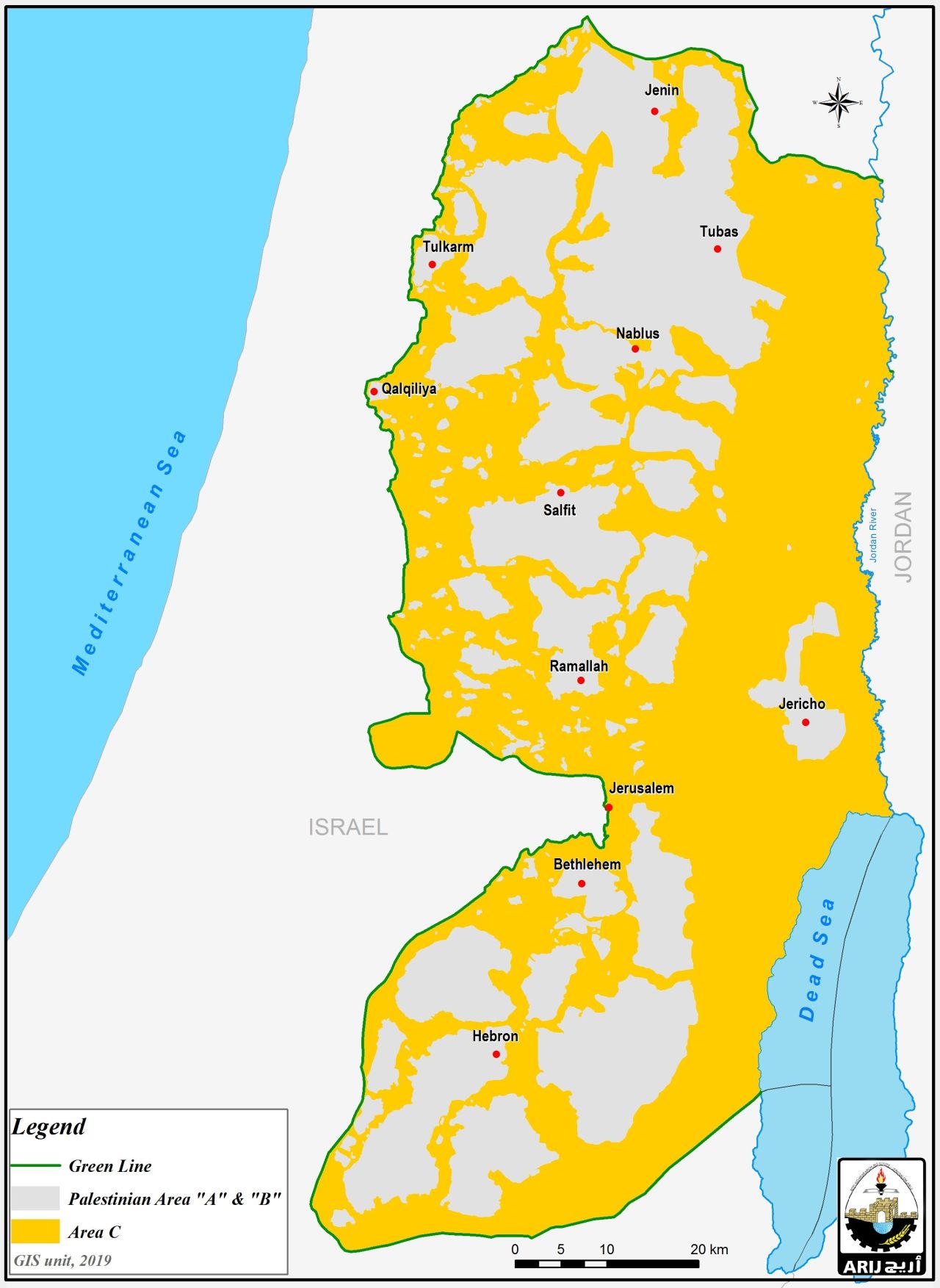- Violation: demolition of structures
- Location: Al-Fakhit, Maghayyer Al-Abeed, and Susiya- Masafer Yatta area
- Date: August 11, 2020
- Perpetrators: Israel Civil Administration
- Victims: citizens of the area
Details:
Israeli Occupation Forces demolished on August 11, 2020 agricultural and residential structures in the area of Masafer Yatta, south Hebron governorate. Masafer Yatta village council said that a massive force from the occupation army accompanied by the so-called Israel Civil Administration and dozers raided Al-Fakhit, Maghayyer Al-Abeed, and Susiya from Masafer Yatta area and carried out the attack.



 Photos 1-4: side of the demolition operation
Photos 1-4: side of the demolition operation
Susya village: the demolition operation targeted the following structures:
- A tent: it is 30m2 in area and is used as a fodder storage unit. The workers accompanying the Israeli force dismantled the tent and loaded it onto a truck. A minutes of confiscation note was left on the location where the tent was set up; it indicated that the confiscated items will be moved to Etzion settlement.
- A residential room: the Israeli force targeted a construction location where a room is being established for citizen Khaled Nawaj’a. Several construction tools (cement mixer, tin plates, iron poles). The confiscated tools were loaded onto a truck and a “stop-work” notice was hanged on the wall of the under-construction room.
Noteworthy, the 40m2 room was designed to be home for a three-member family including a child.
According to military order number (31114), a deadline until September 08, 2020 was given as a final date to complete all licensing procedures. This comes in time with the session of the Planning Committee in Beit El court to consider the status of the notified structures.
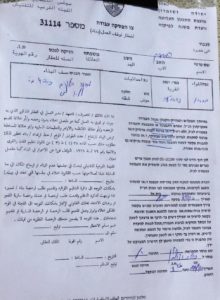 The stop-work notice number 31114
The stop-work notice number 31114
Maghayyer Al-Abeed:
The occupation force then raided the area of Maghayyer Al-Abeed and targeted a barn sheltering 120 sheep. The tent barn was dismantled and loaded onto a truck. A confiscation notice was left in the location of the dismantled barn.
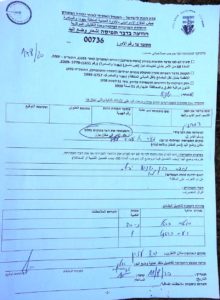 Photo 6: the confiscation notice on the tent
Photo 6: the confiscation notice on the tent
Al-Fakhit village:
The occupation force then raided Al-Fakhit village and targeted a residential tent owned by citizen Jamal Al-‘Moor; he set it up in 2020 to be home for his eight-member family including 4 children. Noteworthy, the 40m2 tent was dismantled and loaded onto a truck. A confiscation notice was left in the location of the dismantled tent.
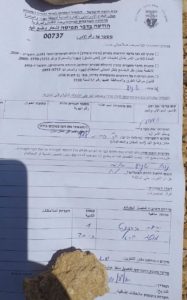 Photo 7: the confiscation notice on the residential tent
Photo 7: the confiscation notice on the residential tent
Clarification:
A confiscation notice is an Israeli means to grab items and materials, citing lack of proper licenses. The confiscated materials are then moved and stored in nearby settlement.
Noteworthy, the confiscation notices cite the possibility of restoring\reclaiming the confiscated materials but huge fines should be paid to that end. To add salt to injury, the occupation authorities oblige the affected Palestinians to pledge not to use the confiscated materials in future projects.
As per the confiscated items, the occupation authorities sell them in open auctions after being confiscated for a period of 90 days. Noteworthy, all these Israeli measures and violations aim at forcing Palestinians out of their lands.
Legal Commentary:
The demolition of Palestinian homes and installations by the occupation authorities is part of their violations of international and humanitarian law, and the violation of the right to adequate housing for Palestinian citizens guaranteed by international law and international treaties presented by the following articles:
- Article 147 of the Fourth Geneva Convention, which states that “Destruction and usurpation of property in a manner not justified by military necessity and on a large scale in an unlawful and arbitrary manner is a grave breaches of the convention.
- Article 53 of the Fourth Geneva Convention of 1948 prohibits the destruction of property, as this article states the following: “The occupying power is prohibited from destroying any private, fixed or movable property related to individuals or groups, the state or public authorities, or social or cooperative organizations, unless the war operations inevitably require this destruction.
- Article 33 of the Fourth Geneva Convention states: “No protected person may be punished for an offense he or she has not personally committed.
- Paragraph ‘g’ of Article 23 of The Hague Convention of 1907 AD also warned against destroying or seizing the enemy’s property, unless the necessities of war necessarily require such destruction or seizure.
- Article 17 of the Universal Declaration of Human Rights, dated December 10, 1948 states that “No one shall be arbitrarily deprived of his property”.
The Land Research Center
LRC

